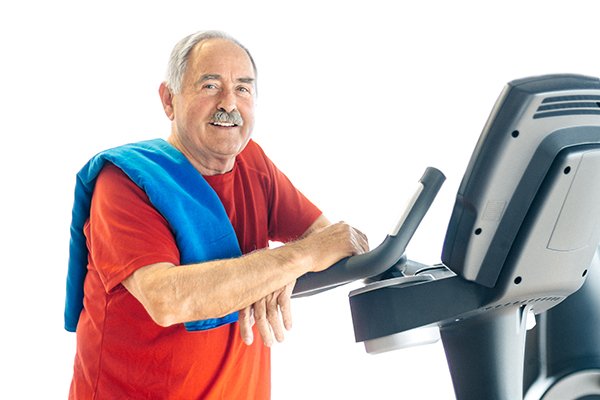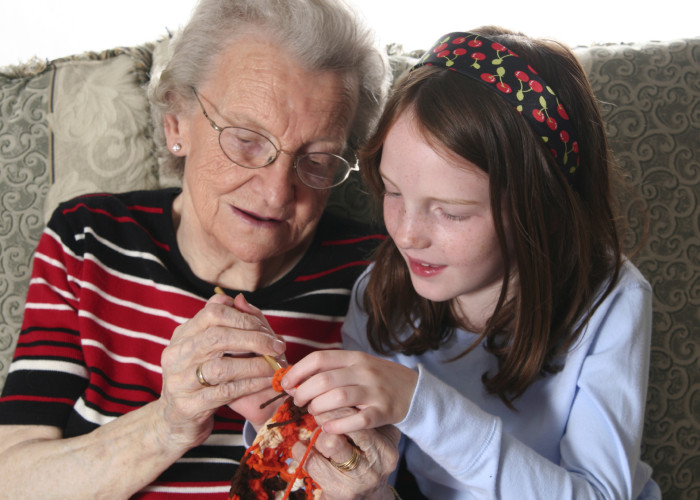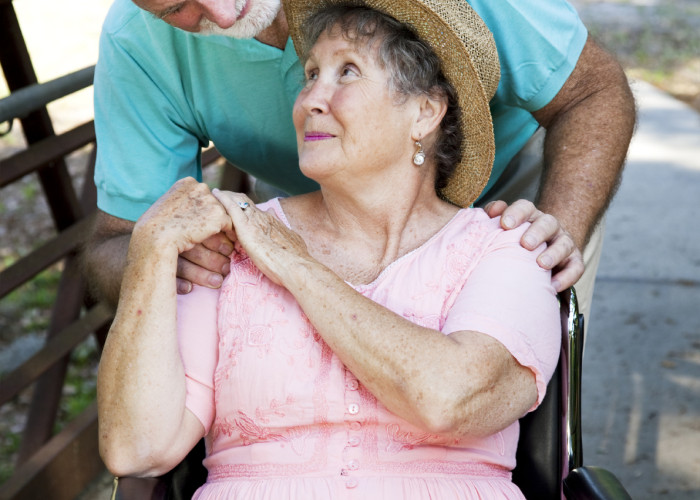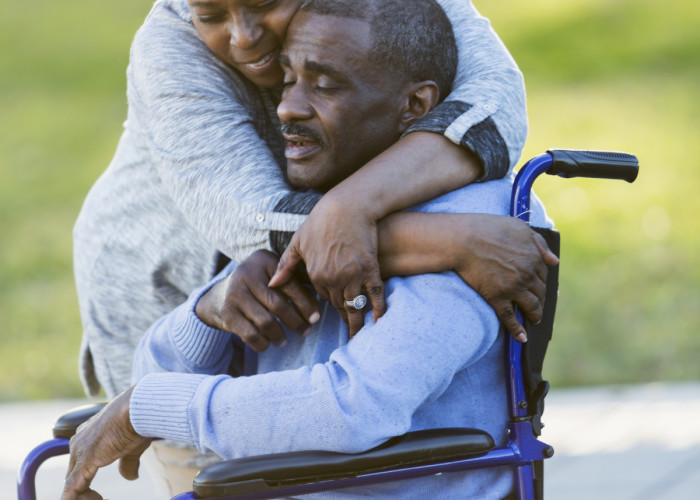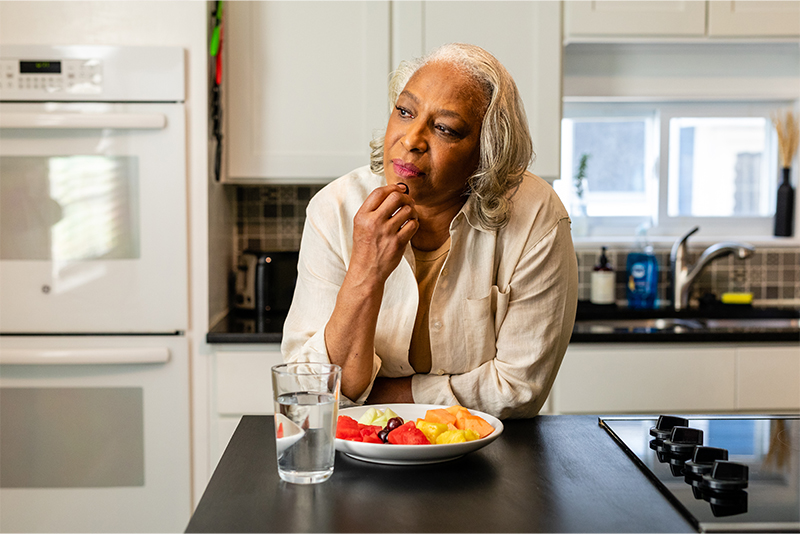dementia
What Elephants Are Teaching Us About Alzheimer’s Disease
Researchers are gleaning information from elephants to help us better understand Alzheimer’s disease.
The old adage is true: elephants truly do have amazing memories, even into their later years. To illustrate, they’re able to recollect and go back to highly specific locations decades after visiting them, irrespective of age. Exactly what can we glean from elephants that may result in helping us better understand Alzheimer’s disease and to maximize our own cognitive performance later in life?
Remarkably, older elephants’ brains show no buildup of the amyloid plaques some researchers are linking to Alzheimer’s. Even though other health professionals tout the need for sufficient sleep to permit the mind the chance to clean away plaques, elephants are tromping over that theory, sleeping as little as 2 hours daily.
But one factor rises above the rest which may be the main key: socialization. … Read More »
Learn to Recognize the Initial Symptoms of Parkinson’s
Hired Hands Homecare’s Napa senior living experts share information on the initial symptoms of Parkinson’s.
Parkinson’s disease affects one out of 100 people above the age of 60, plus the U.S. sees around 60,000 new cases every year, reports the Michael J. Fox Foundation. Because April is Parkinson’s Awareness Month, the home care experts at Hired Hands Homecare want to help raise understanding of the initial symptoms of Parkinson’s, as finding help early is crucial.
A proper diagnosis for Parkinson’s disease requires a battery of tests to rule out other conditions that often mimic Parkinson’s symptoms. However, early diagnosis and treatment might help patients boost their overall condition and experience a greater total wellbeing over time.
Here are warning signs and initial symptoms of Parkinson’s disease:
Moderate tremors – usually the symptom causing visitors to seek medical assistance.
Difficulty getting out of a … Read More »
Providing Elderly Care in Napa | Caring for a Parent With Parkinson’s
Learn tips on caring for a parent with Parkinson’s disease.
A large number of older adults with Parkinson’s disease receive the largest part of their care at home from loved ones, specifically during the earlier levels of the disease. As the leader in elderly care in Napa and the surrounding area, we at Hired Hands Homecare are aware of the unique concerns experienced by family members who are care providers for a parent with Parkinson’s, and want you to know you’re not alone! We are always available to offer recommendations and to partner with you in making sure your loved one is receiving the highest quality care at all times.
To begin with, it’s very helpful to keep these Parkinson’s-specific tips in mind:
Nutrition: A healthy diet helps lessen cell loss in an individual with Parkinson’s. Getting plenty of antioxidants, like … Read More »
At Home Caregivers in Santa Rosa | The Link Between Exercise and Parkinson’s Disease
Learn the important link between exercise and Parkinson’s disease symptom progression.
The particular results of exercising throughout aging are fantastic; however, for people who have Parkinson’s disease, it could truly be a game-changer in the progression associated with the disease. Several studies are revealing direct links between exercise and Parkinson’s disease, including the largest clinical study up to now, in which patients who exercised at least 2½ hours each week gained a higher total wellbeing compared to those who refrained from physical activity. And that’s only the start.
The onset of Parkinson’s symptoms develops following a loss in the brain cells that make dopamine. Experts think that exercise makes it possible for the brain to revive lost connections, form new ones, and keep maintaining those that continue to be in place. Additional studies show:
Gains were realized in stride length, gait … Read More »
Is It Possible That You’ve Received a Parkinson’s Misdiagnosis?
Learn from the elder care team in Marin County about a common cause of Parkinson’s misdiagnosis.
Every year, thousands of American seniors are told they have Parkinson’s disease when they actually have received a Parkinson’s misdiagnosis. For many of these patients, the correct diagnosis is a very similar but not as well-known disease: dementia with Lewy bodies (DLB). Contact us online or call us at (866) 940-4343 to learn about how we can help your family after a diagnosis.
Dementia with Lewy bodies affects around 1.4 million Americans, as reported by the Lewy Body Dementia Association (LBDA). That approximation may very well be too low considering that a number of people who’ve been inaccurately identified as having Parkinson’s still have not been given the correct diagnosis.
Both dementia with Lewy bodies and Parkinson’s disease dementia (PDD) are considered Lewy body dementias, but there … Read More »
Tips for Making the Holidays Brighter for Those with Alzheimer’s
Because those with Alzheimer’s disease and other forms of dementia thrive best on routine and predictability, the holiday season, with its influx of visitors, bright decorations, different foods and activities, etc., can cause some unsettled feelings and distress. At Hired Hands Homecare of California, we’re familiar with the overwhelming nature of the holidays for some seniors, and have put together the following ideas that have worked well to help the seniors in our care maintain a sense of calm and peace:
Stretch out the celebration. Rather than opening a pile of gifts at once, try just one or two at a time for a more low-key approach.
Keep it small. Host small get-together visits, stretched out over several days, instead of trying to incorporate someone with dementia into a large, noisy party.
Maintain routines. As much as possible, hold fast to the routines … Read More »
How to Best Help Those with Alzheimer’s – by Stepping Back
When caring for a loved one with Alzheimer’s disease, it’s natural to want to do everything for the person to minimize feelings of frustration – both for your loved one and for yourself. However, it’s in everyone’s best interest for the person with Alzheimer’s to maintain self-worth and dignity by managing tasks as independently as possible. Try these tips to enhance your loved one’s independence:
Allow extra time. Try not to let the issue of time guide the decision on whether or not to take over a task. If your loved one with Alzheimer’s has the ability to perform the task himself, allow the extra time needed and provide encouragement and positive reinforcement along the way.
Break it down. Taking a larger task and separating it into small, simple steps can change it from insurmountable to possible. For example, break down the … Read More »
The Stages of Alzheimer’s and Care Tips for Each
Understanding the complexities of Alzheimer’s is challenging, to say the least. Since it impacts each person uniquely, there’s no one-size-fits-all approach to providing care. However, there are some broad similarities that can be categorized into three stages:
Beginning Stage:
This stage of the disease can last for years.
Your loved one may experience some changes in thinking and learning abilities, which may not be detectable to others without daily contact.
What you can do:
Be a care advocate for your loved one, providing emotional support and encouragement.
Help plan for the future:
Discuss care setting desires (home, assisted living, hospice) and identify care providers.
Research support groups.
Discuss end of life care requests.
Provide memory prompts and personal organization assistance when needed.
Provide assistance with money management or hire a professional to assist.
Establish a regular daily routine.
Help your loved one to stay healthy and engaged in what he or she loves … Read More »
Alzheimer’s or Depression? Here’s How to Tell the Difference.
In our last blog, we outlined the warning signs that could point to Alzheimer’s. It’s important to note, however, that a number of the symptoms of Alzheimer’s are strikingly similar to those of depression. In order to receive proper treatment, it’s crucial to accurately document which, if any, of the symptoms below are being exhibited by your loved one, and share that information with his or her physician:
10 Warning Signs that Could Indicate Alzheimer’s
It may start out as subtle little nuances that are barely noticeable – Mom begins experiencing slight memory lapses and forgetfulness, occasionally misplacing the keys or phone – but perhaps there’s enough of a change in her behavior to make you wonder: could it be Alzheimer’s? Here are ten red flags to be on the lookout for:






